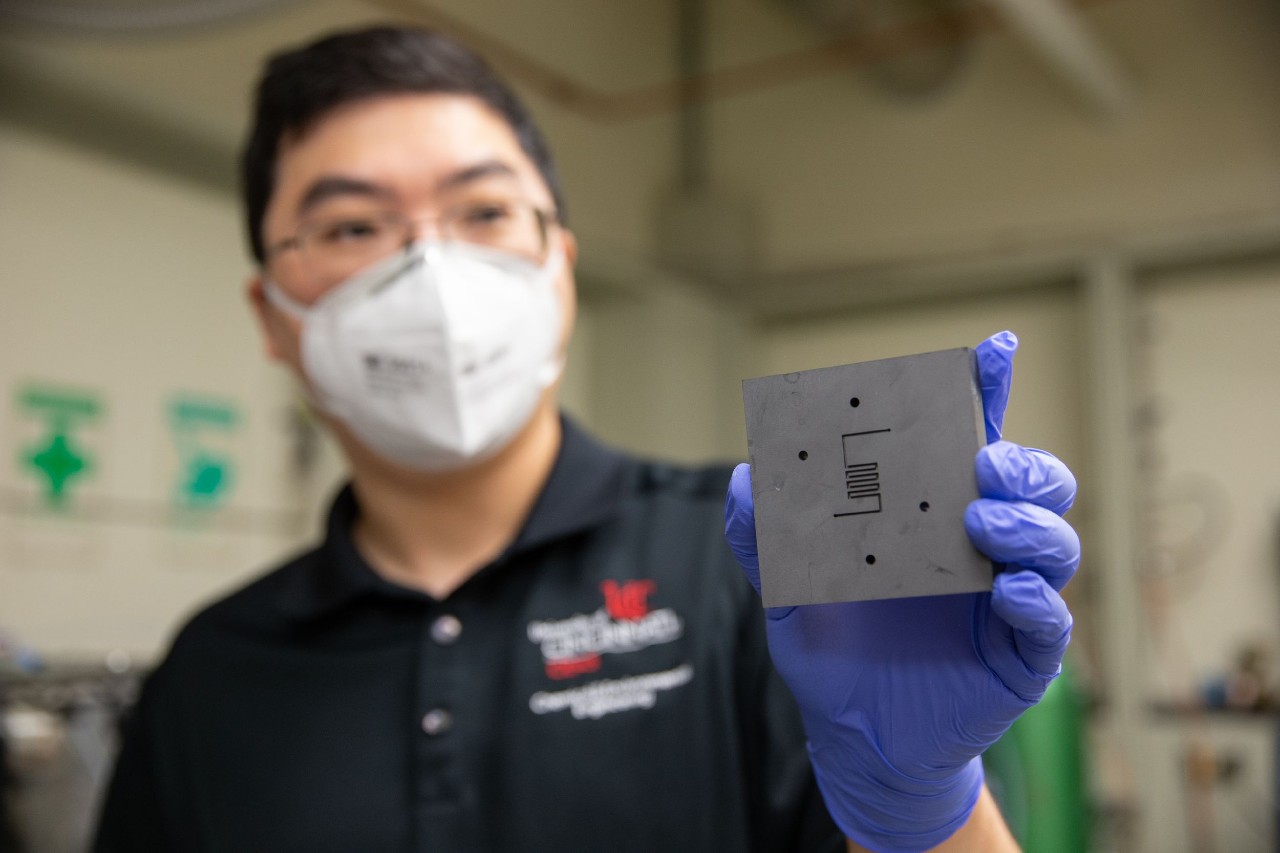
Engineering & Technology: UC engineers make rocket fuel from CO2 reactor
Jingjie Wu wants to apply new tech to climate change and space exploration
Engineering & Technology magazine highlighted research by University of Cincinnati chemical engineer Jingjie Wu that holds promise for addressing climate change and exploring space.
Wu, an assistant professor of chemical engineering in UC's College of Engineering and Applied Science, is developing new reactors that can convert carbon dioxide into a usable fuel. This could make wide-scale scrubbing of greenhouse gases from power plants and other sources more cost effective.
Wu and his students are experimenting with different catalysts to create more efficient reactors and different types of fuel.
And since the atmosphere of Mars is composed mostly of carbon dioxide, the Martian air could provide a ready source of rocket fuel for space exploration.
“Right now if you want to come back from Mars, you would need to bring twice as much fuel, which is very heavy,” Wu said. “And in the future, you’ll need other fuels. So we can produce methanol from carbon dioxide and use them to produce other downstream materials. Then maybe one day we could live on Mars.”
The latest research by Wu and doctoral student Tianyu Zhang was published in the journal Nature Communications with collaborators from Rice University, Shanghai University and East China University of Science and Technology.
Featured image at top: UC assistant professor Jingjie Wu holds up a tiny reactor in his chemical engineering lab. Photo/Andrew Higley/UC Creative + Brand

UC chemical engineering assistant professor Jingjie Wu, left and doctoral student Tianyu Zhang are experimenting with different catalysts to convert carbon dioxide to storable fuel to address climate change. Photo/Andrew Higley/UC Creative + Brand
Related Stories
Bridging health care and legislation: How nursing expertise can...
January 7, 2025
When Rachel Baker, PhD, RN, a University of Cincinnati (UC) bachelor's and PhD in nursing graduate, joined the Ohio House of Representatives in January 2023, she looked forward to leveraging her relationship-building and advocacy skills, as well as using evidence-based and data-driven approaches to policymaking.
Innovation experts predict top tech trends for 2025
January 7, 2025
2025 looks to be a big year for innovation and technology with significant advances in AI adoption, based on predictions from futurist Amy Webb along with Deloitte and McKinsey.
The mystery of what’s causing young people’s cancer leads to the...
January 7, 2025
The University of Cincinnati Cancer Center's Jordan Kharofa was featured in a Wall Street Journal article discussing the role of diet and the gut in rising levels of gastrointestinal cancers among young people.
